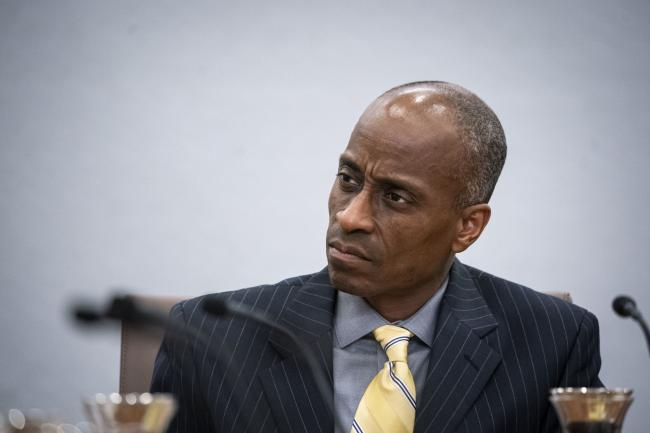(Bloomberg) -- Federal Reserve Governor Philip Jefferson said reducing high inflation is the central bank’s top priority, which will likely require a period of weak growth to ease demand.
“Restoring price stability may take some time and will likely entail a period of below-trend growth,” Jefferson said Tuesday in Atlanta in his first speech since joining the US central bank as a governor in May. “My colleagues and I are resolute that we will bring inflation back down to 2%.”
Fed officials raised interest rates by 75 basis points on Sept. 21 for the third straight meeting as they confront inflation near a four-decade high, and forecast additional tightening ahead. The median projection of the 19 officials was for rates to rise to 4.4% by the end of the year from a current target range of 3% to 3.25%.
“The full effects of monetary policy take time, but in my brief time on the Federal Open Market Committee, we have acted boldly to address rising inflation, and we are committed to taking the further steps necessary,” Jefferson said.
Speaking at a conference on technology disruption at the Atlanta Fed, Jefferson said inflation was “elevated, and this is the problem that concerns me most.” He said he was worried that high prices could feed into the public’s expectations, even with recent declines in gas prices.
“While oil and gasoline prices have come down in recent months, I am concerned that fluctuations in prices of the goods to which people pay the most attention, like food and housing, will affect expectations of future inflation,” Jefferson said.
The Fed governor described the US labor market as ‘’very tight,” citing a high level of quits and job openings. Job openings plummeted in August by the most since early in the pandemic, the Labor Department reported earlier on Tuesday. There are some 1.7 jobs for every unemployed person, down from about 2 in July.
“In a market with more job openings than workers, the competition to fill vacancies is leading to rapid wage gains now, and the resulting salary compression may lead to further upward wage pressures in the future,” he said.
©2022 Bloomberg L.P.
